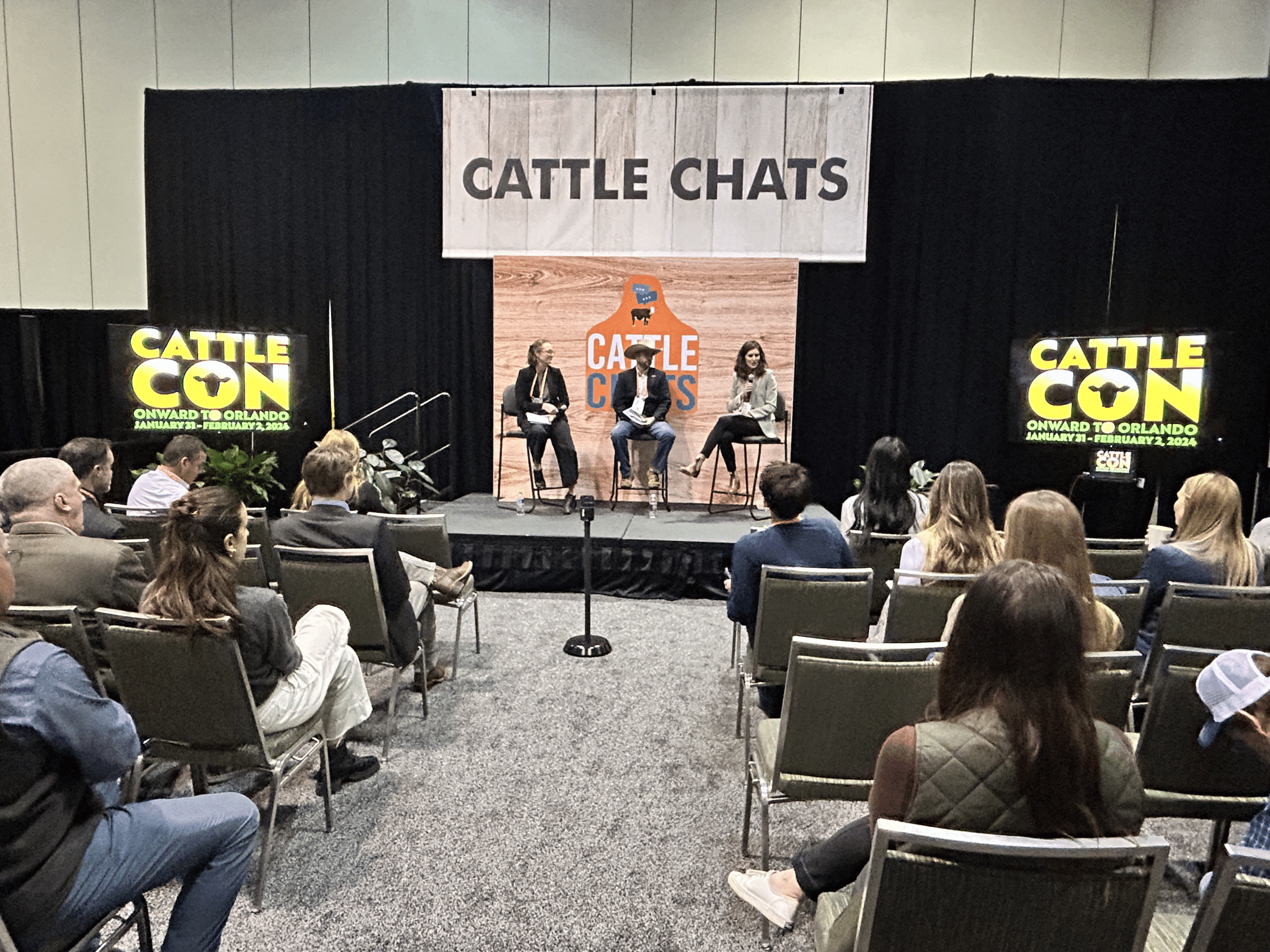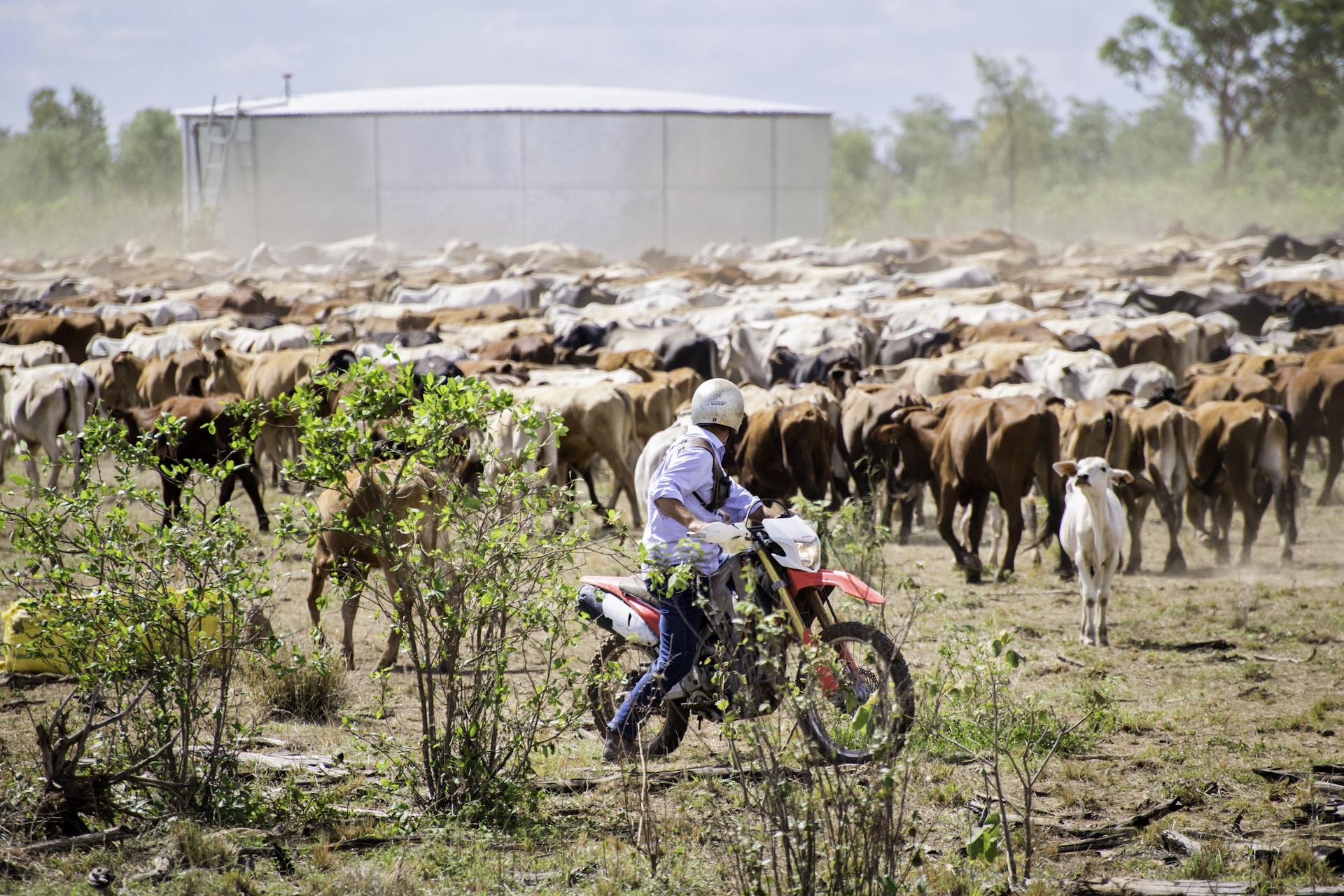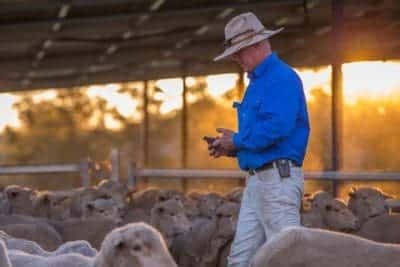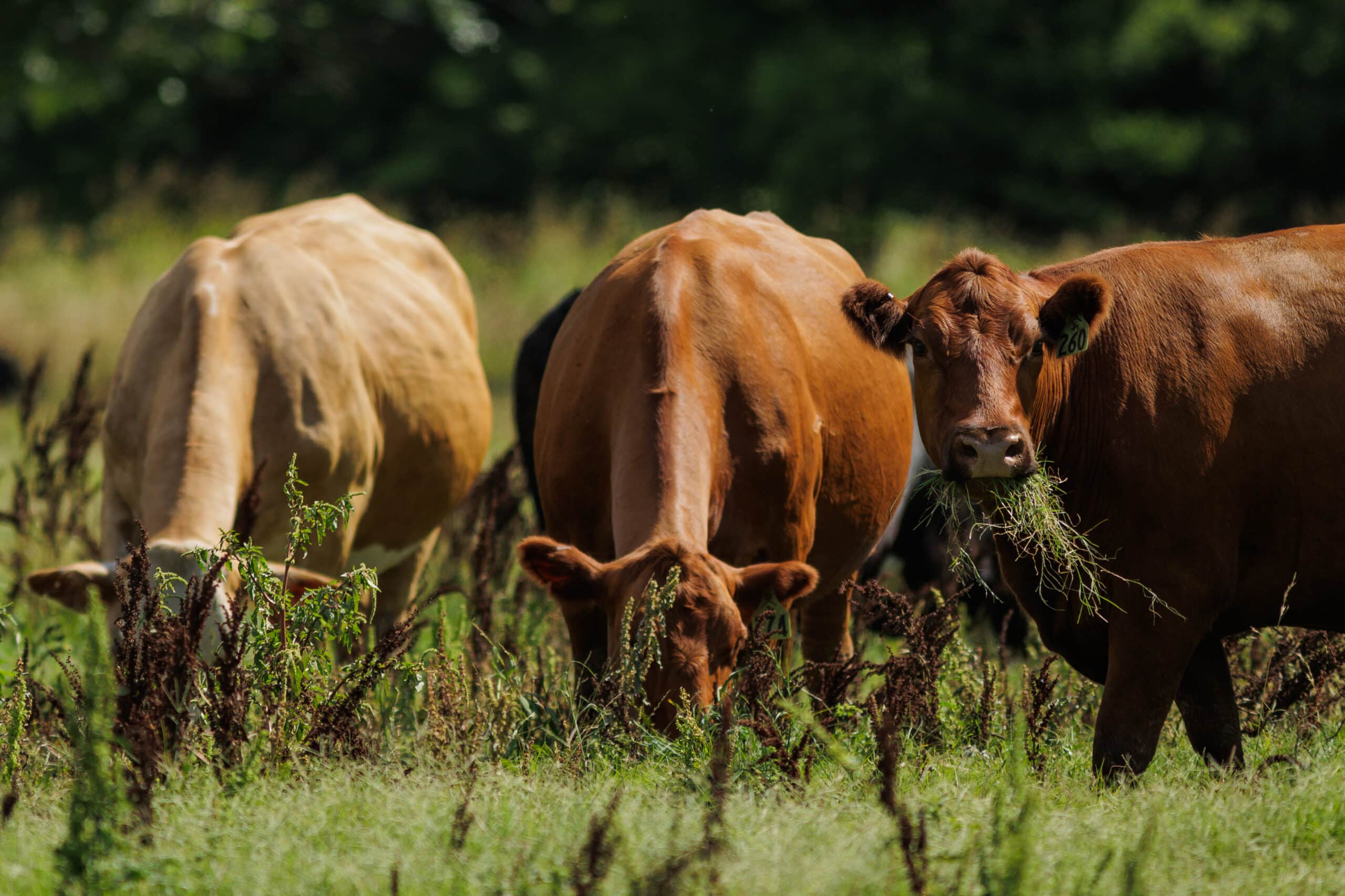Can producers benefit from beef sustainability projects?

Can cattle producers truly benefit from corporate climate projects? That was the question AgriWebb’s Cattle Chats session sought to answer at the National Cattlemen’s Beef Association’s Cattle Industry Convention.
The panel-discussion featured a rancher, representatives from both McDonald’s and livestock software company AgriWebb. Across the board their was a focus on new profit opportunities for livestock producers created by corporate sustainability programs.
As we look forward, 2030 has been marked as a target for climate goals, and increasingly companies are working to meet goals and build more resilience into their agricultural supply chains. Often, the same practices implemented at the farm or ranch level can result in both climate and resiliency outcomes. Corporations selling beef products, like McDonald’s, are developing Scope 3 climate programs that engage producers at the ranch level.
“Sustainability is not a fad or a short-term trend for McDonald’s,” says Belinda Richardson, US Sustainable Sourcing Manager at McDonalds. “McDonald’s is integrating sustainability into our way of doing business as part of a business resiliency strategy. Initiatives, like these climate programs with producers, support both a producer’s business resiliency strategy as well as our own.”
Climate projects must be designed with a producer-first mindset
As Richardson said, a major focus for Scope 3 program development is ensuring that projects make sense for a producer’s operation.
Jacob Gilley, a cattle producer and Senior Technical Livestock and Grazing Specialist at American Farmland Trust, shared that if climate programs fail to do this, they won’t be a sustainable, long-term solution.
A producer’s economic viability is key to the success of these programs. The practices identified in a program must support the producers participating within it.
The good news for producers is that these climate-smart practices support the productivity and profitability of their business. Better yet, they’re practices that producers have been focused on for years.
Corporate sustainability programs depend on ranchers successfully implementing practices that reduce methane or nitrous oxide emissions, often by improving the efficiency and productivity of their operations.
“Cattle producers have already been implementing climate-smart practices in the form of genetic selection, improving animal health and nutrition, improving pasture biodiversity or reducing fertilizer use,” says Nicole Buckley Biggs, PhD, Vice President of Sustainability at AgriWebb.
The proof is in data-backed, recorded practices
Buckley Biggs added, while these practices can lead to positive outcomes, the only way to truly know what improvements have been achieved is by tracking digital ranch records. Not only do livestock management softwares like AgriWebb make record keeping seamless and easy for the producer, they also enable producers to be compensated through practice or outcomes based payments by the program funders.
“The saying, ‘You can’t manage what you don’t measure’ is absolutely true,” says Buckley Biggs. “Whether you are a producer looking to improve your stocking rates or weaning weights or a corporate who needs to hit a climate target by 2030, data plays a crucial role and sheds light on real progress being made.”
Climate projects developed by corporations aren’t the only opportunities for producers to profit from their good land stewardship. Jacob Gilley shared that producers can also get involved with beef-specific USDA Partnerships for Climate Smart Commodities grant projects. Gilley and the American Farmland Trust team are leading a project named Climate-Smart Beef that’s focused on creating a mentorship network for grazing beef producers.
“We are excited to engage beef producers across the eight states of our climate smart project who see value in adopting new practices and maintaining accurate records which showcase their positive contributions to the beef supply chain.” says Jacob Gilley.
Although 2030 seems to be in the far off distance, Buckley Biggs puts the timeline into perspective.
“The reality is, we are just five calving seasons away from the 2030 targets these corporations have set,” says Nicole Buckley Biggs, Vice President of Sustainability at AgriWebb. “The good news is, this year we are seeing new programs launching that have never been available to producers before, and provide critical financial support and technical assistance to support producers along the way.”



